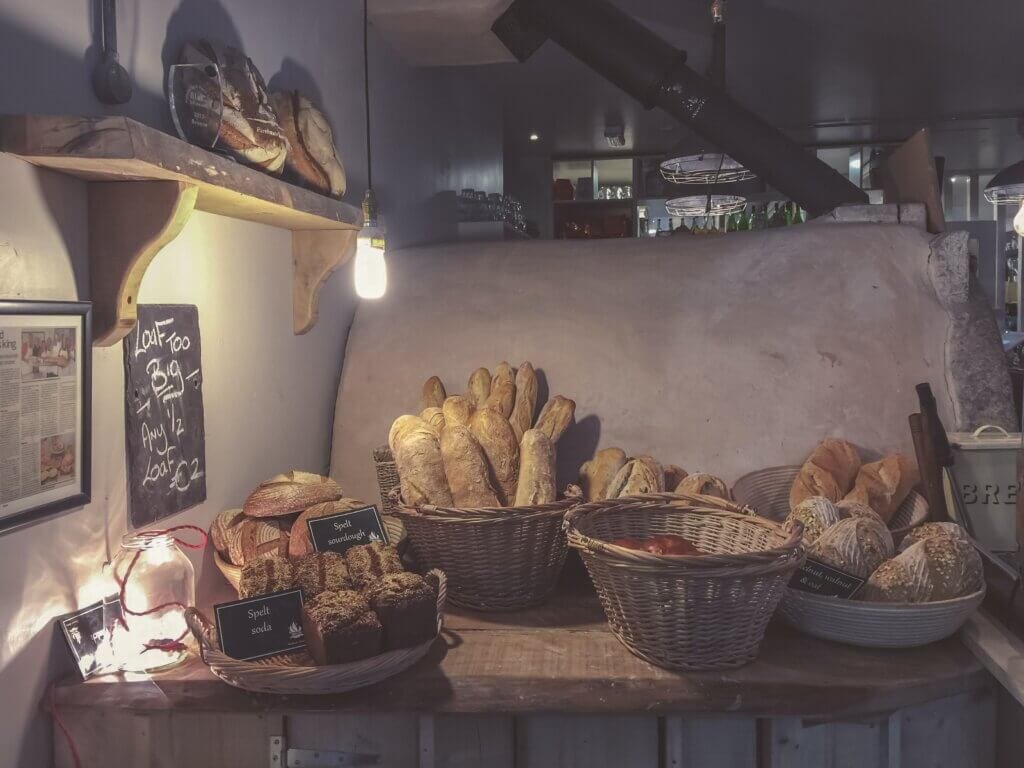So, you love to bake. It has always been your hobby, your stress-reliever, and your creative outlet. But what if I told you that you could turn your baking passion into a profitable business? Yes, you heard it right! With the right mindset, skills, and determination, you can transform your love for baking into a successful venture. In this article, we will explore the steps and strategies to help you make the most of your baking hobby and pave the way to a profitable business. Get ready to put on your apron and embark on this exciting baking journey!

Finding Your Niche
Identifying your speciality
When starting a baking business, it’s important to identify your specialty. Think about what sets you apart from other bakers and what unique skills or recipes you can offer. Do you excel at creating intricate wedding cakes or do you have a knack for delicious vegan desserts? By identifying your specialty, you can appeal to a specific target audience and differentiate yourself from the competition.
Researching the market
Researching the market is crucial in understanding the demand for your baked goods. Look for trends and popular flavors in the baking industry. Identify your target market and determine if there is a need for your specialty in your area. This research will help you tailor your offerings to meet customer preferences and ensure that there is a viable market for your business.
Analyzing competition
Take some time to analyze your competition and identify what sets them apart. Look at their menu, pricing, and branding. Understanding what your competitors are doing well can help you find your unique selling proposition. Differentiate yourself by offering something that your competitors don’t, whether it’s a special ingredient, a unique flavor combination, or a specific baking technique.
Developing Your Skills
Investing in education and training
To excel in the baking industry, it is crucial to invest in your education and training. Consider taking baking classes or workshops to enhance your skills and learn new techniques. By constantly improving your craft, you can ensure that your baked goods are of the highest quality and appeal to a variety of customers.
Experimenting with new recipes
Don’t be afraid to experiment with new recipes and flavors. This will help you develop your own signature recipes and keep your offerings fresh and exciting. Consider hosting taste-testing sessions with friends and family to gather feedback and refine your recipes. This experimentation process will allow you to create a unique and diverse menu that caters to different tastes.
Mastering techniques and presentation
Presentation is key when it comes to baked goods. Mastering techniques such as frosting, piping, and decorating will elevate the visual appeal of your products. Take the time to practice these skills and learn from experts in the field. Remember that customers eat with their eyes first, so investing in the presentation of your baked goods will make a lasting impression.

Creating a Business Plan
Defining your target audience
Identify your target audience based on factors such as age, location, and lifestyle. Understanding your customers will help you tailor your products, marketing efforts, and pricing to meet their needs. For example, if you are targeting health-conscious individuals, you may want to offer gluten-free or vegan options. Define your target audience and align your business decisions accordingly.
Setting realistic financial goals
Setting realistic financial goals is essential for the success of your baking business. Consider your startup costs, ongoing expenses, and desired profit margins. Calculate your expected revenue based on anticipated sales volume and average order value. Setting clear financial goals will help you stay focused and give you a benchmark to measure your progress against.
Establishing pricing and costs
Pricing your baked goods can be challenging, but it is important to cover your costs and make a profit. Consider factors such as ingredient costs, labor, packaging, and overhead expenses. Research industry standards and analyze your competitors’ pricing to find a balance between affordability and profitability. Keep in mind that customers are often willing to pay a premium for high-quality and unique baked goods.
Setting Up Your Workspace
Designing an efficient kitchen layout
Designing an efficient kitchen layout is crucial for productivity and food safety. Consider the workflow of your baking processes and ensure that your equipment and ingredients are easily accessible. Create designated workstations for mixing, baking, and decorating to streamline your operations. Invest in quality storage solutions to keep your workspace organized and reduce clutter.
Investing in necessary equipment
Invest in quality baking equipment that is suited for your specific needs. Depending on your specialty, you may need appliances such as mixers, ovens, and specialized baking tools. Research the best brands and read reviews to ensure durability and functionality. Remember to budget for equipment maintenance and upgrades to ensure the longevity of your business.
Complying with local health and safety regulations
Before you can start baking and selling your products, it’s important to comply with local health and safety regulations. Contact your local health department to understand the requirements for operating a food business. This may include obtaining necessary permits and licenses, ensuring proper food handling practices, and maintaining cleanliness in your workspace. By adhering to these regulations, you can provide a safe and hygienic environment for both yourself and your customers.

Building a Brand
Choosing a unique business name
Choosing a unique and memorable business name is essential for building a strong brand. Consider names that reflect your specialty or evoke a feeling of indulgence and quality. Research existing business names to ensure that yours is not already taken. Once you have chosen a name, register it with the appropriate authorities to protect your brand.
Designing a professional logo and packaging
Invest in professional logo design and packaging materials to convey a sense of professionalism and quality. Your logo should be visually appealing and represent your brand identity. Work with a graphic designer to create a cohesive look and feel for your packaging. This attention to detail will contribute to the overall customer experience and help your products stand out.
Creating a cohesive visual identity
Create a cohesive visual identity across all your marketing materials. This includes your website, social media profiles, and printed materials. Use consistent colors, fonts, and imagery that reflect your brand personality. This visual consistency will strengthen brand recognition and make your business more memorable to customers.
Marketing and Promotion
Building an online presence
In today’s digital age, it is crucial to have an online presence to reach a wider audience. Create a professional website that showcases your baked goods, provides information about your business, and allows customers to place orders. Consider starting a blog or recipe section to engage with your audience and establish yourself as an expert in your field. Optimize your website for search engines to increase your online visibility.
Utilizing social media platforms
Utilize social media platforms to connect with your target audience and showcase your products. Create accounts on platforms such as Instagram, Facebook, and Pinterest to share enticing photos of your baked goods. Engage with your followers by replying to comments, hosting giveaways, and sharing behind-the-scenes content. Social media is a powerful tool for building brand awareness and driving traffic to your website.
Collaborating with local businesses or influencers
Collaborating with local businesses or influencers can help you expand your reach and build credibility. Consider partnering with local cafes, wedding planners, or event organizers to provide them with your baked goods. Offer them a discount or commission in exchange for promoting your business to their customer base. Collaborating with influencers in the food and baking industry can also expose your brand to a wider audience and help you gain new customers.

Sourcing Ingredients and Supplies
Finding reliable suppliers
Finding reliable suppliers for your ingredients and supplies is crucial for maintaining the quality of your baked goods. Research local suppliers and ask for referrals from other bakers or food industry professionals. Consider factors such as product quality, pricing, and delivery schedules when evaluating suppliers. Building strong relationships with your suppliers will ensure that you have access to high-quality ingredients on a consistent basis.
Considering organic and local options
Incorporating organic and local ingredients in your recipes can be a selling point for health-conscious and environmentally conscious customers. Research local farms or organic food suppliers in your area. Not only does this support local producers, but it also allows you to offer unique flavors and seasonal variations in your baked goods.
Managing inventory and logistics
Efficiently managing your inventory is important for minimizing waste and ensuring that you have enough ingredients on hand. Use inventory management software or spreadsheets to keep track of your inventory levels and expiration dates. Implement a system for ordering and replenishing ingredients to avoid running out of stock. Consider factors such as lead time and shelf life when planning your orders, and adjust your inventory management as your business grows.
Understanding Business Finances
Tracking income and expenses
It’s crucial to keep track of your income and expenses to understand the financial health of your business. Use accounting software or hire a professional accountant to track your revenue, costs, and profits. This will help you identify areas where you can reduce expenses and make informed decisions about pricing and budgeting.
Separating personal and business finances
To maintain financial clarity and ensure accurate reporting, it is important to separate your personal and business finances. Open a separate bank account and credit card for your business transactions. This separation will make it easier to track your business expenses, calculate your profitability, and comply with tax requirements.
Seeking professional accounting advice
If you’re not confident in managing your business finances, consider seeking professional accounting advice. An accountant can help you with tasks such as bookkeeping, tax planning, and financial forecasting. They can also offer guidance on tax deductions, legal considerations, and financial strategies to optimize the profitability of your baking business.

Legal and Regulatory Requirements
Registering your business
Before you start operating your baking business, you will need to register it with the appropriate authorities. Research the laws and regulations in your jurisdiction and follow the necessary steps to register your business name, obtain a business license, and register for any applicable taxes. Compliance with legal requirements will protect you and your customers and ensure that you are operating within the law.
Obtaining necessary licenses and permits
Depending on your location and the nature of your baking business, you may need to obtain specific licenses and permits. These may include food handling permits, health department inspections, and zoning permits. Research the requirements in your area and ensure that you have all the necessary documentation to operate your business legally.
Understanding food labeling and packaging regulations
Food labeling and packaging regulations are important for providing accurate information to your customers and complying with legal requirements. Understand the regulations specific to your jurisdiction, such as allergen labeling, nutritional labeling, and ingredient disclosures. Ensure that your packaging is clear, informative, and meets all necessary guidelines.
Customer Service and Satisfaction
Providing exceptional service
Providing exceptional customer service is crucial for building a loyal customer base. Offer personalized interactions, prompt responses to inquiries, and efficient order fulfillment. Consider offering additional services such as customized cakes or catering options to cater to your customers’ specific needs. By going above and beyond to ensure customer satisfaction, you can turn one-time customers into repeat buyers.
Handling customer complaints
No business is immune to customer complaints, but it’s important to handle them with professionalism and empathy. Listen to your customers’ concerns, apologize for any mistakes, and offer a fair resolution. Use these complaints as an opportunity to improve your products and services. Addressing customer complaints promptly and satisfactorily will help maintain your reputation and build trust with your customers.
Encouraging customer feedback and reviews
Encourage your customers to provide feedback and leave reviews about their experience with your baked goods. Consider implementing a system for collecting feedback, such as online surveys or comment cards. Positive reviews and testimonials can be powerful marketing tools and help attract new customers. Address any negative feedback or criticism constructively and use it as an opportunity for improvement.
By following these steps and dedicating time and effort to your baking business, you can turn your hobby into a profitable venture. Remember to continuously refine your skills, stay updated with market trends, and prioritize customer satisfaction. With perseverance and a passion for baking, your business can thrive in the competitive bakery industry.


